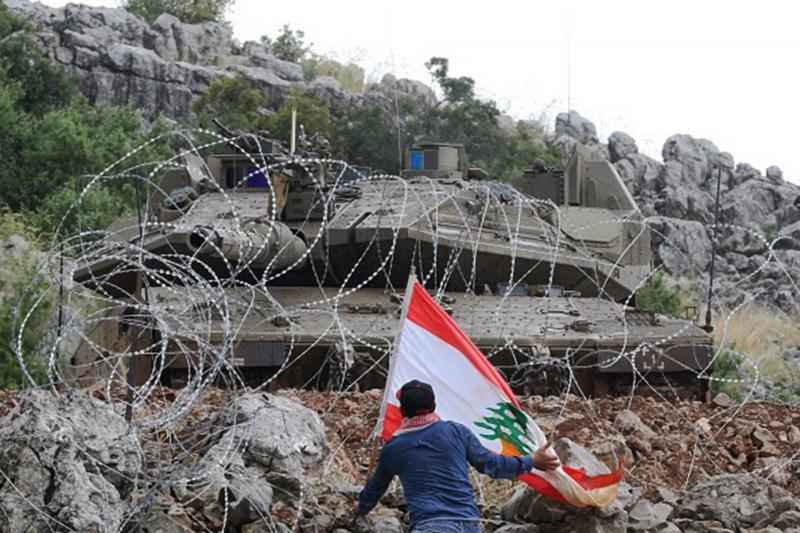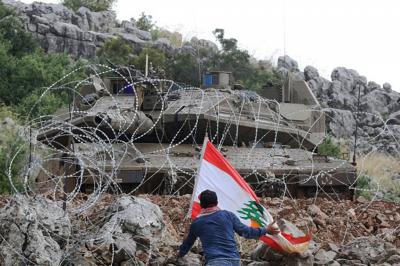On the edge of a precipice, the Lebanese spend their days and nights, and their entire lives, from the elderly to the youth. They cast their rosy dreams and life projects into an unknown future, not because they are lovers of suffering and reckless adventures or uncalculated steps, but because it has been written for them, in bold black letters, to live for many years under the mercy of a regime that cares only about maintaining its iron grip, even if it costs the lives of an entire population and the collapse and extinction of the nation.
After a glimmer of hope brought about by a successful summer season and reliance on the return of growth in markets during the holiday season, economists and traders feel a new disappointment. However, despite all the successive crises—political, economic, financial, and security-related, especially in light of the war in Gaza and its repercussions on border areas, along with fears of its spread to all regions—the Lebanese people will not yield to the desires of those with dark intentions. They will not allow a flock of crows to soar in the overcast sky, foretelling doom, destruction, and evil. Simply put, throughout history, they have been a paragon, like the Phoenix that shakes off the debris and soars high in a sky with a shining sun, carrying the white flag of peace inscribed with: “We want a beautiful Lebanon, tourism, prosperity, development, and education. We want Lebanon to always be and forever the beacon of the East and the pearl of the Mediterranean. We do not want war, which leads only to death and more wars. We do not want a war that destroys people before stones."
Perhaps the Lebanese people have experienced the bitterness of wars more than anyone else, and they know well that the warring parties will ultimately sit at the same table and share the spoils, while the poor will pay a heavy price for their wars. What if it were possible to forgo this war, which has no relation to Lebanon in any way, especially since many consider what is happening in the South a game, despite its massive human and material costs? What have the campaigns over the past years that raised the slogan "We remember, and it should not be repeated" been, if not to warn the younger generation against slipping into it?
These young people, weary of a state stripped of the decision of war and peace, emigrate to any country where they feel they live under the wing of a state that guarantees their rights and allows them to fulfill their duties towards it. Yes, it is a state stripped of its decision, and there is nothing to be done about it. Thus, the country and its people remain at the mercy of what "Hezbollah" decides, as despite the speeches of the party's secretary-general, Mr. Hassan Nasrallah, which do not indicate the extension or expansion of the war, concerns remain present. In wars, any unexpected move can occur at a fateful moment, especially since it has turned the country into an open arena, operating on an Iranian agenda. When the disaster strikes that will destroy the already devastated country due to its political and economic crises, regret or saying, "If I had known," will not be of any benefit.
Based on this reality, some political forces and civil society groups have decided not to succumb and wanted to raise their voices high, demanding to spare Lebanon from war under the slogan "Lebanon Does Not Want War." After the campaign focused on social media, involving politicians, artists, and journalists, it moved to the streets, especially in the capital, Beirut, where billboards were erected with messages like: “I want Lebanon,” “War does not lead to victory but to more wars,” and “To prevent the past from repeating, Lebanon does not want war.” Text messages also reached many Lebanese phones, containing these slogans.
The slogan "Lebanon Does Not Want War" encapsulates the opinions of the majority of Lebanese who believe that the Palestinian cause is being used to achieve specific political goals, transforming the land of the Cedars into a game or a puppet or a winning card in the hands of regional states at the negotiating and bargaining tables. In any case, regardless of our differences, the majority of Lebanese raise their voices high: "We are seekers of peace, and it is cowardice to fight those who advocate for peace. As it is said: 'War is but the art of peace.'"




